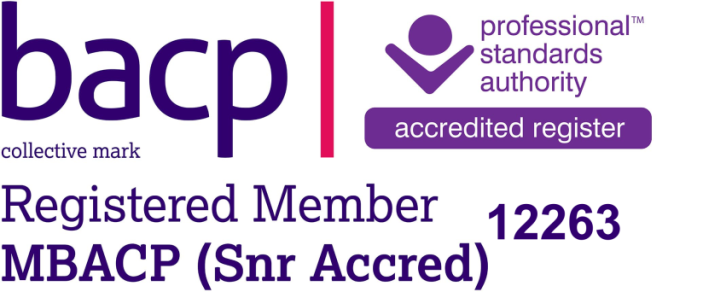Supervision
What is Supervision?
I qualified with a diploma in Supervision in 2008 and I have worked with many supervisees, both individually or in groups, since.
It is a formal arrangement and requirement for therapists to discuss their work regularly with someone who is experienced in both therapy and supervision. The task is to work together to ensure and develop the efficiency of the therapists’ relationship with their client. The agenda is the therapy and any feelings around that work. It will include the supervisor’s reactions, comments, guidance and challenges. This will ensure an adequate standard of therapy is maintained. Supervision takes into account different theoretical models of training, philosophy and methods of both the therapist and the supervisor.
The BACP recommends a minimum of 18 hours per year, which equates to1 ½ hours supervision per calendar month. This may be increased in some situations, for example, if the therapist is working with intensive trauma or has a particularly heavy caseload. If you are a therapist working through an agency, and have secured your supervision independently, then you will need to comply with the number of hours of supervision that your agency instructs. There might also be a requirement for more hours of supervision, than the recommended minimum, if you are a trainee. These are all situations we can agree on initially, before we contract into a professional arrangement, including expectations regarding tasks, roles and responsibilities being clarified. There will need to be an agreement about the boundaries of confidentiality regarding the clients to who you are accountable. This can vary depending on whether you are in training, working through an agency or in private practice.
Purpose of Supervision
My purpose of supervision is to support counsellors in the development of their professional work, with their clients, while ensuring they are working ethically and professionally. Supervision is a requirement by the BACP and other professional bodies for the therapists’ safe and secure practice of counselling and psychotherapy. It is necessary as therapy can place demands upon us; possibly becoming too involved, ignoring something important, becoming confused or even doubting our own usefulness. Supervision gives the opportunity to discuss any issues, in confidence, which can be invaluable. It is a place to relate theory to practice and vice-versa which can aid further learning and help the development of your counselling practice. I will ensure you are addressing the needs of your client while adhering to ethical standards.
My Model of Supervision
Working as an integrative counsellor, my model of supervision is to approach my supervisee from a person centred perspective and to provide an empathic environment to explore the issues brought to supervision. To carry out my supervisory functions I require knowledge of ethical codes and requirements. I also use the necessary qualities and skills to encourage and empower you, as therapists, while exercising empathy and understanding to enable me to work at your pace. I will encourage you to find solutions and share some of my own experiences, when appropriate, to aid learning and flexibility in advancing your client work. I will clarify any feelings about these shared ideas confidently, as my process may be challenged. I hope as supervisees you could constructively confront so that we may explore things further, together. It is important to show you that I am not the expert, and although I may be more experienced, this might not always make me the most knowledgeable as learning comes from practice.
I will ask that you inform me about your client base, with a synopsis, and your working situations. It is important to also explore clients who have not been previously presented. My approach is congruent and will facilitate and encourage you to challenge yourself. It is my intention to build a supportive therapeutic relationship with my supervisees.
Disclaimer
With all new supervisees I will ascertain your qualifications and training, along with your professional membership and insurance. This secures your ethical position and adherence to legitimate membership requirements. I will always ask about your expectations of supervision and clarify my limitations and boundaries. As a supervisor I will support and guide you, challenging as appropriate. I will re-affirm our commitment and responsibilities to supervision by way of a signed contract.
I will be mindful of your feelings with clients and support you by acknowledging these and how they might affect best practice. If there was a client issue that personally affects your professional work, I will encourage you to attend your own personal therapy to work on this. I will explain the boundary issues in trying to deal with this in supervision.
An awareness of difference and diversity needs to be apparent in our work together to ensure there are equal opportunities.
I aim to support, accept and interact with my supervisees in a collaborative and confidential working manner. I am aware I need a good understanding of different theoretical models, with a willingness and openness to declare what I may not know and would need to research.
I hope this answers any questions you may have about supervision and how I work, but please do not hesitate to contact me for any further information. You may do this by telephoning me on 07836 652734 or directly emailing me debbie@dscounselling.co.uk.
